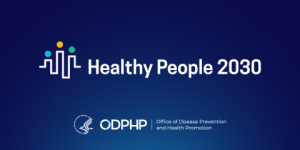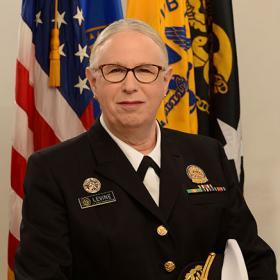La Oficina para la Prevención de Enfermedades y Promoción de la Salud (ODPHP, por sus siglas en inglés) no puede dar fe de la exactitud de un sitio web no federal.
El enlace a un sitio web no federal no constituye un respaldo por parte de la ODPHP, o de cualquiera de sus empleados, a los patrocinadores o a la información y los productos presentados en el sitio web.
Usted estará sujeto a la política de privacidad del sitio web de destino cuando siga el enlace.
El Departamento de Salud y Servicios Humanos (HHS, por sus siglas en inglés) no es responsable del cumplimiento de la Sección 508 (accesibilidad) en otros sitios web federales o privados.

